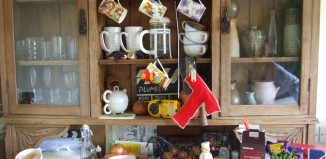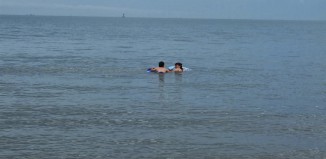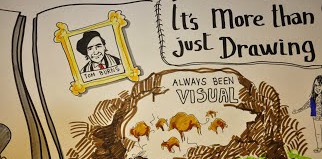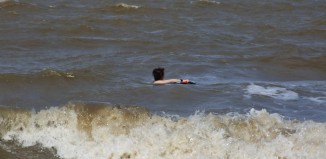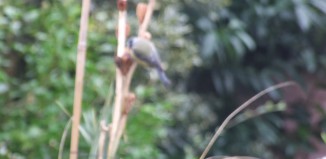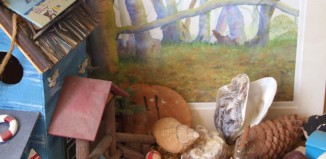Syndicated
Making MOOCs truly open
Massive open online courses (MOOCs) have become a worldwide phenomenon, as interested folks from anywhere in the world can participate. Some MOOCs attract huge numbers of students, many coming from countries where access to higher education may be difficult or not available at all. In some cases, students completing a MOOC are able to earn […]
The post Making MOOCs truly open appeared first on Communicating Across Cultures.
#LiveArtHistory W2: Story
Andreas Gursky
Thomas Struth
#rhizo14 – De-schooling to Get Ahead
W8: Demobbing Soldiers (Mar 4-?)
Facts: irrelevant!
How hard is it to get people to change their beliefs? Really hard, even if facts are provided that refute those beliefs. And even if those facts are accepted as true! A recent study in Scientific American points to this conclusion. The study, by Brendan Nyham of Dartmouth College, dealt with the now-debunked idea that […]
The post Facts: irrelevant! appeared first on Communicating Across Cultures.
#LiveArtHistory W1: Art is being human
For me - art is fundamental to being human, we are art. Many of us are taught at school that we cannot 'do' art - that we are not good enough - and it cuts us off from ourselves. I found myself again after hearing someone talk about doing a daily water colour to de-stress - a meditation to start each day. I took my unused water colour box to work (a very stressful place) and started. Soon my walls were plastered with pix - and I discovered joy and a new confidence. I try to build artwork into all my teaching - and helped put on a small conference to help others do this also:
http://learning.londonmet.ac.uk/epacks/look_make_learn/
Art is not about money, big business, the stamp of approval from big collectors.
Art is being human.
Farewell to #rhizo14 (– hello #LiveArtHistory – next post)
There are lots of tools out there, and, in some cases, they change all the time. The communication skills involved in being social... those are constant. The process of converting your existing skills in being social, in doing research, in project management, in information literacies - this is the focus of the course. And I expect that to work out differently for each student. We all come to this kind of course with different understandings and a different background and I expect we’ll all come out with different outcomes. That’s good. And expected. If I do my job in this course as an instructor, you’ll be working for yourself... not for me. I talk about literacies. uncertainty. decision making. creativity. lots of nice buzz words. This year I'm going to be adding 'abundance' and 'permission'…
Periods? No.
Interesting piece in the New Republic about the use of periods in text messages and online chats. It’s not something I’ve thought about or even noticed. In text messages I rarely see any punctuation. The period in short-form electronic communication plays a quite different role than it does normally in writing. According to the article, […]
The post Periods? No. appeared first on Communicating Across Cultures.
California Association of Teachers of English (CATE) award
Just What I Needed
#rhizo14: W5: Community as Curriculum: Poetry as a Mode of Inquiry?
Teaching as a Human Experience: An Anthology of Contemporary Poems
An edited anthology volume by Dr. Karen Head (Assistant Professor in Georgia Tech’s School of Literature, Media, and Communication), and Patrick Blessinger (Founder and Executive Director, Higher Education Teaching and Learning Association)
Volume one of the anthology series, Contemporary Teaching and Learning Poetry Series, Patrick Blessinger, series editor.
Submissions should be submitted electronically to:
https://www.hetl.org/poem-submission-form/
Volume One Overview
The poems in this collection will deal with the real life-worlds of professors, instructors, and others working in education and it will cover contemporary teaching experiences in education. The poems will be written mainly by college and university professors, instructors, lecturers, and others in the field of education, and will cover the many roles teachers play, including instructing, lecturing, mentoring, facilitating, coaching, guiding, and leading. This volume will cover the manifold life experiences and perspectives of being and working as a teacher in education and the epiphanies (experiences of deep realization) experienced in that role.
This volume seeks to give creative voice to the full range of experiences by teachers, students, and others. It seeks to empower readers with personal agency as they evolve as self-creating, self-determining authors of their own lives, personally and professionally. In short, it seeks to expand our consciousness of what it means to be a teacher in contemporary life and within diverse learning environments and cultures. The poems will be based on teachers’ meaningful experiences in and out of the classroom and will provide artistic inspiration and creative insight to other teachers who work as teachers.
Submission Requirements
You may submit up to two poems or creative works per person. Any poetic form is accepted, but each poem should be limited to 300 words, unless the poem of longer length is exceptional in quality and highly unique in insight or style and appropriate to the poetic form used. Thus, poems and creative works expressed in a pure economy of words and that are able to distill the human experience down to its bare essence are highly valued as are creative use of voice, passion, imagery and the interplay of intellect and emotions.
The poem “Lecture” by Tami Haaland and the poem “Student” by Ted Kooser are a few examples of the type of work this volume seeks.
Submissions
We invite submissions of high quality poems and creative works for Volume One entitled, Teaching as a Human Experience: An Anthology of Contemporary Poems. We are interested in poems by teachers (e.g., professors, instructors, lecturers, faculty) as well as other practitioners in the field of teaching and learning.
Submission Deadline: June 20, 2014
Submissions should be submitted electronically to:
https://www.hetl.org/poem-submission-form/

